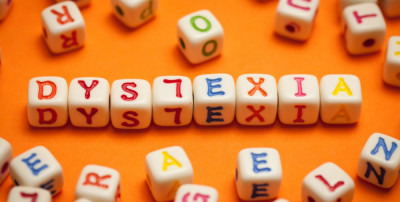Dyslexia Testing > Online Dyslexia Quiz for Adults & Children
New Updates



Take Dyslexia Test & Screener Online
Get StartedDiscover Hidden Learning Challenges With a Dyslexia Assessment
Dyslexia is a common learning disability that affects a person’s ability to read and spell. Identifying dyslexia early can significantly help in managing its challenges. This makes testing for dyslexia an invaluable step. Through a comprehensive dyslexia assessment, individuals can gain insights into their learning styles and develop effective coping strategies. Early diagnosis can lead to better educational support and improved coping mechanisms, both for children and adults. In this article, we will explore the various aspects of a dyslexia test and its benefits.
Everything You Should Know About Dyslexia Testing
A dyslexia quiz comprises a series of evaluations designed to determine difficulties in reading, writing, and spelling. These tests can vary in complexity, depending on the age group being assessed. For instance, a dyslexia screener for kids differs significantly from the one for adults. Primarily, the tests are conducted by professionals who specialize in understanding learning disabilities. Such assessments provide clarity on whether the individual’s challenges are typical or indicate dyslexia screening. In the comprehensive dyslexia assessment protocol, the test for dyslexia plays a crucial role, working in conjunction with other evaluations such as developmental history, cognitive assessments, and language skills evaluations. These components together provide a holistic understanding of the individual's learning profile.

Types of Dyslexia Quiz
- Phonological awareness assessment
- Rapid naming speed tests
- Memory and learning evaluations
- Reading and spelling performance tests
How a Dyslexia Test Can Improve Learning
Understanding whether you need an assessment for dyslexia can transform education and personal growth paths. One of the main benefits is gaining understanding and validation. Knowing there is a reason for the struggles can be liberating and can alleviate self-doubt. This knowledge paves the way for targeted learning strategies and accommodations. Educators and parents equipped with the results of dyslexia testing can tailor instruction to better support the individual. Furthermore, interventions become more effective and ensure the person reaches their full potential.
Support and Strategies Post-Diagnosis
For adults grappling with reading and comprehension challenges, the first step towards a viable solution is often a dyslexia test for adults. Once the diagnosis is clear, it paves the way for the development of effective strategies. These may include personalized learning plans and therapy, which are common recommendations for dealing with such learning difficulties. Moreover, many people find that technology aids, like text-to-speech software, enhance their learning experience. Another significant advantage of conducting a dyslexia assessment is the opportunity to grow self-esteem and confidence by understanding personal strengths.

Is This the Right Test for You?
If questions like “am I dyslexic?” arise, it could be useful to seek professional advice. Individuals or guardians might want to get tested for dyslexia if certain signs are persistently noticeable. These signs include difficulty in reading, writing, and processing information quickly, which are often noted early in educational settings. Undertaking a dyslexia test for kids can relieve parents’ concerns by providing a clear picture of what their child is experiencing. Similarly, adults recognizing signs later in life should consider a test for dyslexia adults to access support and resources that can significantly enhance professional and personal growth.
Table of Dyslexia Symptoms and Testing Options
| Symptom | Testing Recommendation |
|---|---|
| Difficulty reading aloud | Phonological awareness assessment |
| Trouble with spelling | Spelling performance tests |
| Slow information processing | Rapid naming speed tests |
| Memory issues concerning language | Memory and learning evaluations |
Take Dyslexia Test & Screener Online
Get StartedFAQ About Dyslexia Testing
-
What age is best for dyslexia testing?
Early diagnosis is beneficial. Dyslexia test for kids can begin as soon as difficulties in reading and spelling are suspected.
-
Can adults undertake dyslexia assessments?
Yes, the process is equally beneficial for adults. A test for dyslexia in adults can provide insight into educational and workplace challenges, ensuring more effective strategies are used.
-
Does dyslexia only affect reading?
No, it can also impact writing, spelling, and sometimes speech. A comprehensive dyslexia screening can identify these various elements.
-
Can schools provide necessary testing?
Many schools have resources for dyslexia testing, often initiated through recommendations from teachers based on observed learning difficulties.
-
How long does a dyslexia assessment take?
The length can vary, but often includes several hours of testing across multiple days to ensure accuracy and reflection of the individual’s challenges.
 The Importance of Dyslexia Tests Online
The Importance of Dyslexia Tests Online